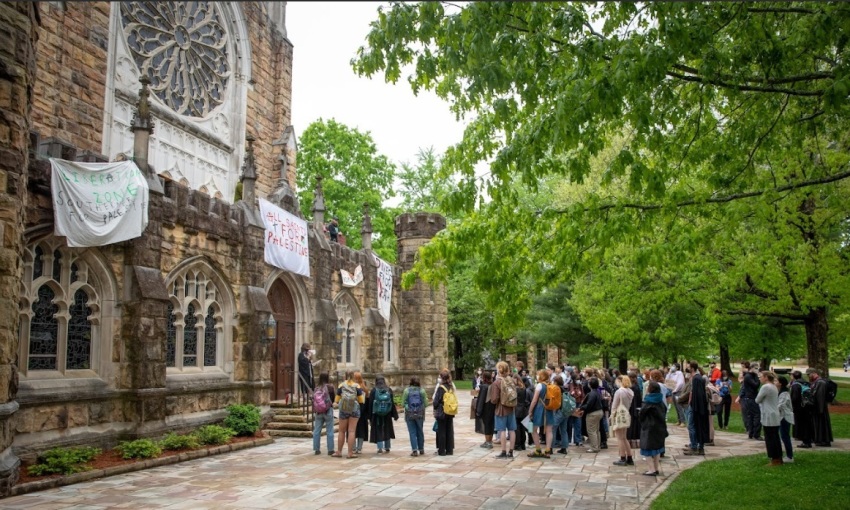Episcopal university considering divestment from Israel in response to campus protests

A Tennessee university affiliated with The Episcopal Church has agreed to consider a process of divestment from Israel in response to on-campus student protests against the war in Gaza precipitated by the Oct. 7 terrorist attacks carried out by Hamas.
The University of the South, located in Sewanee, saw around 75 students stage a pro-Palestinian demonstration at All Saints’ Chapel that began on April 30 and continued through early May.
University spokesman Parker Oliver told The Christian Post that while there is “no concrete divestment plan,” conversations about the matter will be part of the crafting of a formal environmental, social and governance (ESG) framework regarding “any new investment policy.”
“The university strives to align endowment investments with its values. However, to date, there has not been a formal process to evaluate that alignment,” Oliver added via email.
“This new ESG framework will formally align endowment investment with university values and principles. This new ESG framework will also provide an opportunity for university stakeholders, including students, to provide their perspectives to the Investment Management Committee of the Board of Regents.”
Oliver also told CP that the university's leadership expects the ESG framework to be in place by New Year’s Day 2025.
As with many other universities in the United States, the University of the South saw students hold a demonstration on campus in opposition to Israel’s war in Gaza.
On April 30, university leadership emailed the campus community to explain that students have a “right to gather and express their opinions,” and that the demonstration neither interfered with campus operations nor damaged any buildings.
The April 30 email went on to note that university officials were meeting with student protesters regarding their demands and that they were closely watching the demonstration develop “for any activities that might jeopardize student safety or interrupt the normal university activities.”
After meeting with Rob Pearigen, vice-chancellor and president of the university, the students agreed to disband on May 1 so that the class of 2024 graduation photo could be taken.
Pearigen met with protesters again on May 2. Some, however, decided to climb the roof of the chapel, with the official warning them that disruption of campus activities would be punished.
“I asked that students end the protest on the roof and in front of All Saints’ Chapel and refrain from disruption of university activities. The university respects the right of free expression and will permit students [to] relocate, if they wish, to ensure the safety of all involved,” wrote Pearigen in a May 2 email.
“I also made it clear that many of the actions taken constitute clear violations of the Student Code of Conduct, and students who remain in the area of All Saints’ Chapel, including on the roof and the patio, will face suspension or expulsion.”
An additional meeting between students and university officials was held two weeks ago, reported Episcopal News Service, which involved further explanations on how school investments work.
Several colleges have seen multiday Pro-Palestinian protests, with some demonstrations turning violent and several incidents of antisemitism reported by Jewish students and others.
Regarding the demonstration held at the University of the South, Oliver told CP that, “while we cannot comment on the protestors’ specific sentiments, from our observation of the protest, we believe that antisemitism was not a motivation.”



























